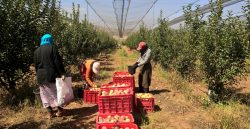The courageous actions taken by a group of migrant workers have prompted critical discussions regarding migrants’ rights in Singapore. Last week, when a road collapsed into a 10ft deep sinkhole, taking a car with it, nearby construction workers immediately rushed to rescue the driver. Grabbing a rope from their work site, they pulled the woman to safety within minutes.
This is not an isolated case of migrant workers risking their lives to help others. An article by the BBC shows Singapore has built its economy on the backs of migrant workers, who face conditions that make them systematically vulnerable to labor abuse and exploitation.
Yet, despite an increased awareness around migrant workers issues over the years, the government does very little to instil protections that would make them resilient to exploitation. As stated in the article, there is “disproportionate power in the hands of employers, over the lives and livelihoods of migrant workers,” which more often than not, fosters environments ripe for exploitation and abuse that can easily slide into the extreme condition of modern slavery.
Built into the economy, left out of society
The workers involved in the rescue, like over a million others in Singapore, are laborers from low-income countries such as Bangladesh, India, and Myanmar. Employed in labor-intensive sectors like construction and manufacturing, the majority take on the low-wage jobs that locals avoid. Many earn as little as US$233 (£175) a month with no minimum wage protections, trapping them in cycles of poverty and dependence, exacerbating their vulnerability to labor abuse.
They often live in harsh conditions in crowded dormitories far from residential neighborhoods, isolated physically and socially from the rest of the city. During the COVID-19 pandemic, these dormitories became virus hotspots—which improved only after advocates triggered public concern.
Today, although well documented, many migrant workers still face forced overwork, withheld or unpaid wages, and other abusive labor practices by employers and recruitment agencies.
AKM Mohsin, who runs an activity center for Bangladeshi workers in central Singapore says:
They make the news and are held up as excellent examples of humanitarian work, but their own humanity and human rights are constantly being violated at their workplaces, in how they are transported, and how they live,
Moreover, these migrant workers cannot qualify for permanent residency regardless of how long they’ve worked in the country. And they need government approval to marry Singaporeans. The work permits they hold are different from foreign professionals and executives, reinforcing a system that controls and restricts their freedoms and rights. This makes migrant workers systematically vulnerable due to their legal status being constantly precarious.
Advocates demand more than recognition
After the sinkhole incident went viral, the seven workers involved were given commemorative coins by the government. But many activists saw this as tokenism. Social worker, Suraendher Kumarr, said:
No amount of ‘thanking’ them for their heroism should excuse the exploitative economic model that oppresses them every day to sustain the lives we live in Singapore,
Advocates have long called for reforms including implementing a living wage, providing whistleblower protections, and subsidized healthcare. Banning the transportation of migrant workers on flat-bed trucks has also been a concern. The unsafe practice led to 4 deaths and 400 injured in 2024 alone and has been outlawed in other countries.
But meaningful reforms have been slow, and the government often frames workers’ safety in economic terms—arguing that tighter regulations could hurt small businesses or delay housing and infrastructure projects.
As suggested by Kummarr in the article:
The levies collected from foreign workers could be used to subsidize other modes of transport without passing costs on to businesses and consumers.
Yet, many Singaporeans still see migrants as “essential but inferior.”
Take action
But public pressure is growing. Freedom United stands with advocates, demanding Singapore address the systemic inequalities that allow migrant workers to be subjected to labor abuse and exploitation. Because, without these critical protections, it is too easy for that exploitation to become so extreme that it constitutes as modern slavery.
Join us by signing the petition advocating for safe migration policies so that migrant workers are afforded the protections they deserve from exploitation.







Freedom United is interested in hearing from our community and welcomes relevant, informed comments, advice, and insights that advance the conversation around our campaigns and advocacy. We value inclusivity and respect within our community. To be approved, your comments should be civil.